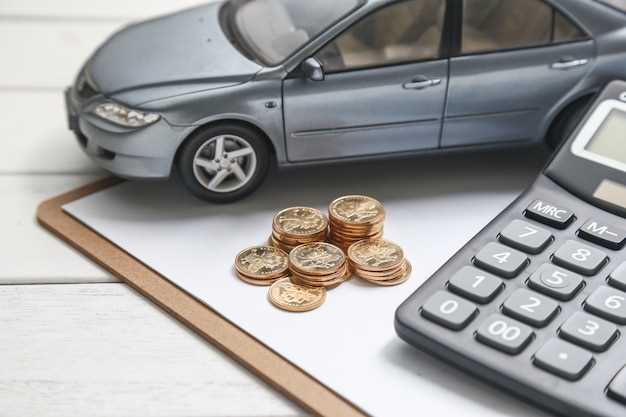
In the ever-evolving world of classic cars, understanding the value of these timeless vehicles is essential for both buyers and sellers. The market for collector cars is influenced by a myriad of factors that can significantly affect resale prices. Recognizing these elements can help enthusiasts make informed decisions during transactions.
One of the primary factors influencing resale value is the rarity of a specific model. Limited production runs often lead to higher demand among collectors, resulting in increased value. Additionally, condition plays a vital role; vehicles that are well-preserved or restored to original specifications usually command a premium in the market.
Furthermore, historical significance can greatly impact a classic car’s value. Models associated with important events in automotive history or those driven by notable figures tend to attract more attention from collectors, thereby enhancing their resale potential. The economic climate and trends within the collector car market also contribute to fluctuations in value, making awareness of these external factors crucial for anyone involved in buying or selling classic cars.
Impact of Rarity and Production Numbers on Value

The rarity of a collector car plays a crucial role in determining its value in the classic automotive market. Cars that were produced in limited quantities tend to attract more interest from enthusiasts and collectors, making them highly sought after. As the production numbers decrease, the scarcity of the vehicle increases, often leading to a higher resale price.
Production numbers directly influence desirability. For example, iconic models that were part of a short production run or featured unique specifications are often valued significantly higher than their more common counterparts. Collectors are typically willing to pay a premium for cars that are not only rare but also possess a captivating history or exceptional features.
The relationship between rarity and value is further complicated by market trends. As certain models gain popularity, the perceived value can fluctuate based on current demand within the collector community. Some classic cars may appreciate quickly due to a resurgence in interest, influenced by film appearances, celebrity ownership, or specific automotive events that highlight their significance.
Ultimately, understanding the impact of rarity and production numbers is essential for collectors aiming to navigate the complex classic car market effectively. A discerning buyer will always consider how these factors contribute to the long-term value of a vehicle within their collection.
Condition and Restoration Quality: Key Determinants
The condition of a collector car is one of the most critical factors impacting its resale value. Buyers often prioritize vehicles that are well-maintained, showcasing minimal wear and tear. A car in excellent condition commands a higher price due to its immediate usability and aesthetic appeal. Factors such as mileage, rust, and mechanical integrity play significant roles in determining overall condition.
Restoration quality is equally essential when evaluating a vehicle’s market value. Professional and thorough restorations that retain original parts and authenticity often yield better resale prices. When restorations are poorly executed or involve non-original components, potential buyers may question the car’s integrity, resulting in decreased market interest.
Furthermore, documentation of restoration work enhances credibility. Detailed records of repairs, upgrades, and maintenance create transparency and can significantly influence buyer confidence. Collectors are typically willing to pay a premium for cars with verified restoration processes, as this indicates a labor of love and a commitment to preserving the vehicle’s heritage.
In summary, both the condition of a collector car and the quality of its restoration are key determinants of resale value. A well-maintained vehicle with high restoration standards is likely to attract greater market interest and command higher prices. Investors should prioritize these aspects to ensure optimal returns on their collector car investments.
Market Trends and Demand Fluctuations in Classic Cars

The classic car market is highly dynamic, influenced by a variety of factors that can significantly affect the value of collector vehicles. Over the years, trends in consumer preferences play a crucial role in shaping demand and, consequently, the resale value of classic cars. For instance, certain brands or models may become popular due to nostalgic value or their representation in popular culture, driving prices upward.
Economic conditions can also lead to fluctuations in demand. During times of economic prosperity, collectors are more likely to invest in high-value classic cars, enhancing prices in the market. Conversely, economic downturns often lead to a decrease in spending power, resulting in lower demand and reduced resale values. Additionally, changes in fuel prices and environmental regulations can impact interest in certain types of classic vehicles, affecting their market desirability.
Moreover, the rise of online platforms has transformed how classic cars are bought and sold. Digital marketplaces expand access to a global audience, allowing sellers to reach potential buyers beyond their local markets. This increased visibility can lead to heightened competition among buyers, subsequently driving up prices for sought-after models.
Demographics also play a significant role in influencing market trends. Younger generations, while less inclined to traditional classic cars, may seek unique and innovative vehicles from the late 20th century. This shift in interest can create fluctuations in the market value of classic cars from specific eras, as collectors adapt to the evolving tastes of potential buyers.
In summary, the classic car market is subject to a multitude of influences, with market trends and demand fluctuations significantly impacting the value of these vehicles. Understanding these dynamics is essential for collectors and sellers aiming to navigate the complexities of the classic car market successfully.




